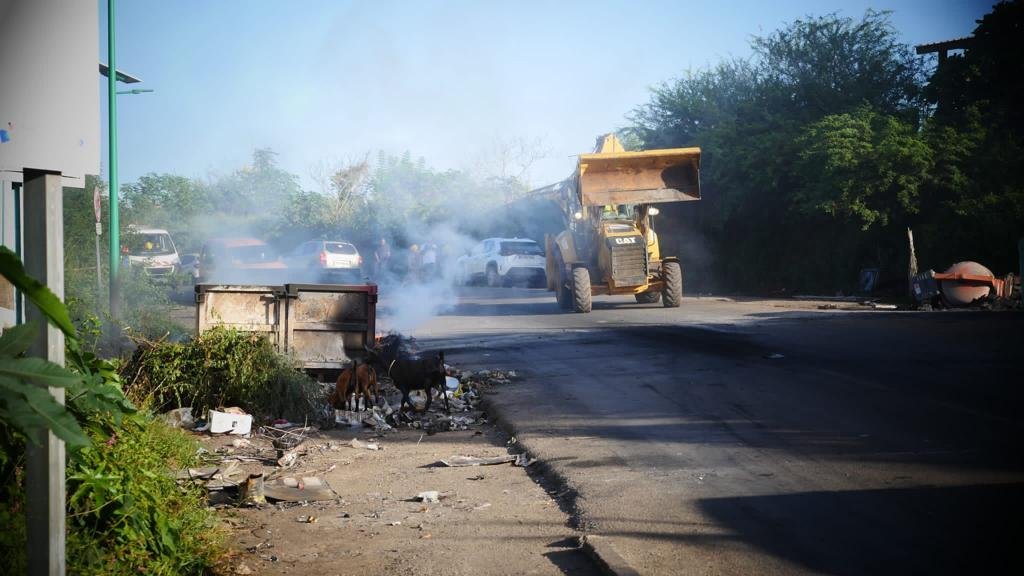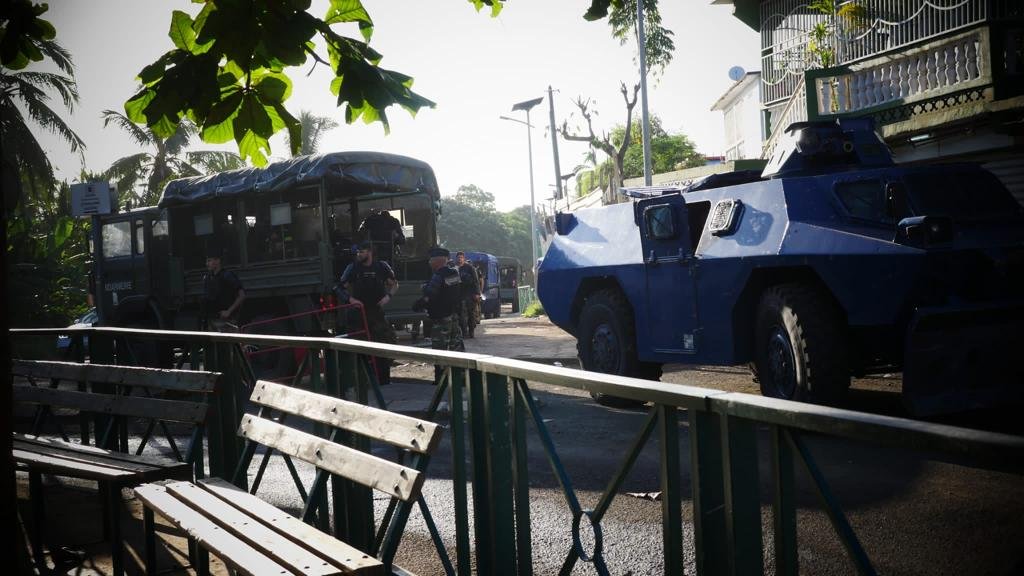In Mayotte, ‘we live in fear of being deported’
Migrants on the Indian Ocean island of Mayotte are hiding from authorities amid an ongoing operation to raze urban slums and remove undocumented foreigners. InfoMigrants correspondent Romain Philips reports from the French territory. Perched on a rail in Tsoundzou Park, in the east of Mayotte, Issouf heaves a sigh when he hears the word "Wuambushu".
The name of the operation has been on the minds of many of the inhabitants of the French island for days. "Obviously, the operation worries me, but will it really change our daily lives? When you are a Comorian in Mayotte, you always live in fear of being deported," he explains. "I have already been expelled four times, with or without Wuambushu."
Also read: French territory Mayotte plans to demolish slums and deport migrants[1] Each time he was expelled, the 42-year-old got back into a kwassa-kwassa (a Comorian fishing boat used by migrants to reach Mayotte) and made the 70-kilometer crossing all over again. Issouf has been afraid of being deported for a fifth time ever since the launch of Operation "Wuambushu" ("Take Back" in the local language) against delinquency and illegal immigration in Mayotte.
The authorities want to carry out the "razing" of run-down neighborhoods and the expulsion of foreigners in irregular situations, who mostly come from neighboring Comoros. "All my children were born here, I'm not going to let them down," says Issouf, his posture hunched. He already had "several residence permits" which were valid for one or two years.
However, on the island, "the waiting times are so long, you can lose your residence permit before it is renewed," he adds in halting French.
 Clashes continue on the island of Mayotte | Photo: Romain Philips/InfoMigrants
Clashes continue on the island of Mayotte | Photo: Romain Philips/InfoMigrants
For Issouf, "it's a game". He is "aware" that immigration to Mayotte can get out of control. "But those who want to integrate should be welcomed... For example, I have family in mainland France and I would like to see them again one day," he added.
Even with a residence permit, foreigners cannot go to France. To leave the department, you need a visa.
'I rarely go out anymore'
Like Issouf, many foreigners expelled from the island have since returned. Mayotte also deports more irregular migrants than all the other the French overseas territories, or 'departments', combined.
The foreigners who have not yet been expelled live in fear of an encounter with law enforcement. Since the beginning of the operation, ordered by the Minister of the Interior Gerald Darmanin, the level of fear has never been so high. In the days leading up to the operation, 500 police officers arrived from the metropolis for reinforcement.
"The police is everywhere around my house. I rarely go out anymore. They patrol in the morning and in the evening.
I only go out when I have to, more often around noon when everything is calm," says Hardi*, an undocumented man who came from Comoros two years ago.
'I don't want to be paffed'
Since the beginning of Wuambushu, the objective has been "to saturate the space," as explained by an interior ministry spokesperson. This explains why the military police are here at the entrance to the city and in the slums.
 The police are particularly visible in Mayotte | Photo: Romain Philips/InfoMigrants
The police are particularly visible in Mayotte | Photo: Romain Philips/InfoMigrants
In the shantytown of Kaweni are dozens of sheet metal housing units. The "bangas", as they are called in Mayorais, are small houses that appear along the streets of ochre-colored earth marked out by tires.
Thousands of people live in difficult conditions, among banana trees and drying laundry, in the place known as "the largest slum in France." The heat is stifling, water is scarce and electricity is sometimes simply not available. Ali, a large man in his thirties, has spent the day at the edge of the main road. He is trying to sell some of his belongings in order get away: "I don't want to be paffed," an expression that means being caught by the border police, the PAF.
The young man smiles but regularly looks over his shoulder. "I am in a Facebook group. Whenever someone sees the PAF, he reports it and we run away," he says with a laugh. He has been playing cat and mouse with the police since he was very young.
'I can't lose my parents'
Next to him, Said is not laughing at the situation.
The young teenager with swollen, red cheeks is in high school. Vacation has just started but enjoying his free time is out of question. He is too worried about his parents.
"What do I do if the police destroy the slum and evict my parents?," he asks. "I don't know how life works, I can't lose my parents. I have four brothers and three sisters and we would end up on our own." In Mayotte, many families fear ending up on a separate shore from the one where the boats of deported migrants leave after each wave of expulsions.
While it is legally impossible to expel children born in France, their parents from the Comoros can be expelled. Police sometimes deport parents and thus separate them from their children. The latter joins the ranks of thousands of unaccompanied minors on the island, between 3,000 and 4,000, according to the interior ministry.
The children, left to themselves, often turn to crime. After municipal employees marked the dwellings to be demolished, many preferred to destroy their homes themselves. "We gather our things and go hide in the forest," says Adil, a young man with a round scar on his cheek. He tries to fit as many things as possible into a supermarket bag.
Behind him, he leaves no trace.
*Name changed
References
- ^ French territory Mayotte plans to demolish slums and deport migrants (www.infomigrants.net)